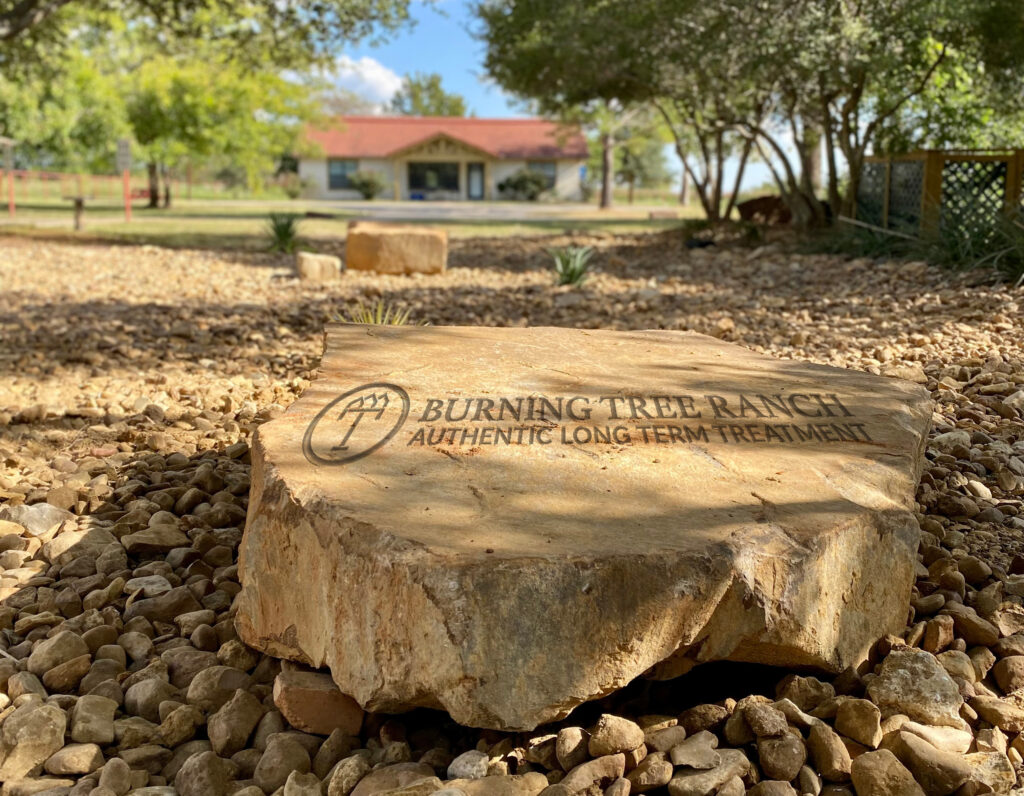One of the most telling signs of the chronic relapse struggle is returning a poor response to constructive feedback. It’s a red flag that’s often overlooked but is so important to recognize and work through if we want to achieve a lasting recovery.
I can tell you from personal experience how important it is for feedback to be received and processed with sincerity and mutual respect, and conversely how disruptive it can be for relationships when feedback from family and loved ones is rebutted or ignored by the person in addiction.
Let’s dive into what this behavior looks like and why it matters so much for recovery efforts.

Why Do We Need Constructive Feedback in Recovery?
First off, let’s get clear on what we mean by constructive feedback in the context of addiction recovery. It’s not about criticism or judgment – it’s about offering observations and suggestions that can help someone grow and stay on track with their sobriety.
Constructive feedback can come from various sources:
- Therapists and counselors
- Sponsors in 12-step programs
- Family members and loved ones
- Peers in recovery groups
- Interventionist and Family Coaches
The goal is always the same: to support the individual in their recovery journey and help them identify areas where they might be struggling or need to focus more attention.
Noticing the Signs of Poor Response to Constructive Feedback
Now, here’s where things get tricky. When someone is actively in an addiction, they often show a few telltale signs when faced with constructive feedback – feedback that is objectively meant to be helpful, and not overly critical.
Defensive Reactions
If your loved one immediately gets their back up when you try to offer gentle feedback, that’s a red flag. They might respond with anger, sarcasm, or by shutting down completely.
Deflection and Blame-Shifting
Watch for responses that push responsibility onto others. “Well, if you didn’t stress me out so much, I wouldn’t need to drink!” This kind of deflection is a classic sign of someone who’s not ready to face their own role in their addiction.
Minimization of Concerns
When someone consistently downplays the seriousness of their actions or the concerns of others, it’s a problem. “You’re making a big deal out of nothing” or “Everyone drinks sometimes” are examples of this minimization.
Lack of Follow-Through
Pay attention to what happens after the feedback is given. Does your loved one make promises to change but never actually take action? This pattern of agreeing in the moment but not following through is a clear indicator of resistance to change.
In fact, this is such an important indicator of progress in recovery that it’s central to our progress-based approach at Burning Tree Ranch.
The Negative Impact on Recovery Efforts
When someone can’t or won’t take in constructive feedback, it has serious consequences for their recovery journey. For starters, it can stunt an individual’s growth and progress as rebutting feedback usually means declining an opportunity to learn and improve on some critical area.
Unsurprisingly, a reluctance to listen to and enact meaningful changes feeds directly into the cycle of relapse. When issues aren’t adequately addressed – especially if they are significant issues related to health, finances, and relationships – it leaves the addicted individual vulnerable to the same patterns of behavior that have led to, or contributed to, their substance use in the past.
There’s also the strain placed on relationships when feedback is constantly rejected. This can wear down even the most loving, supportive relationships. It’s part of why some families end up believing their addicted loved one is ‘beyond hope’. For the chronic relapser, this achieves the goal of isolating themselves – intentionally or not – so that they can continue their substance abuse.

Personality Disorders Impact On Poor Feedback Reception
To be clear, there’s usually more going on with an individual beyond substance abuse. There can also be real underlying mental health conditions or personality disorders that are interfering with an individual’s ability to accept feedback in a health way.
Common personality disorders that can interfere with accepting feedback include:
- Narcissistic Personality Disorder (NPD): Individuals with NPD often see feedback as a threat to their inflated self-image, leading to defensive or dismissive reactions.
- Borderline Personality Disorder (BPD): People with BPD may perceive feedback as criticism or rejection, triggering intense emotional responses.
- Avoidant Personality Disorder (AvPD): Individuals with AvPD are highly sensitive to criticism and may avoid or take feedback personally, leading to feelings of inadequacy.
- Antisocial Personality Disorder (ASPD): Those with ASPD may disregard feedback, seeing it as irrelevant or an attempt to control them.
- Obsessive-Compulsive Personality Disorder (OCPD): Individuals with OCPD may struggle with feedback, believing their way is the only correct approach, leading to defensiveness or dismissal.
Personality disorders like these are well-documented and can make it challenging for individuals to process feedback constructively.
Selfish & Self-Centered Behaviors Alongside Addiction
The effects of addiction may lead to patterns of selfishness and self-centeredness in general, which can significantly hinder a person’s ability to accept feedback.
Some examples of this behavior include:
- Distorted Priorities: The person prioritizes their addiction over relationships and responsibilities, leading them to dismiss feedback that challenges their behavior.
- Denial and Justification: They may deny the harm their addiction causes, justifying their actions and rejecting criticism.
- Fear of Vulnerability: Accepting feedback requires admitting flaws, which threatens their ego, leading them to perceive feedback as an attack.
- Manipulation and Control: They might reject feedback to maintain control and manipulate situations in their favor.
- Isolation: Addiction often leads to emotional and physical isolation, making it easier to ignore feedback.
- Immediate Gratification: The focus on immediate pleasure makes long-term change suggested by feedback seem unappealing.
Overall, their self-centered focus on their addiction creates a barrier to recognizing the value of feedback or the need for change.

Strategies For Sharing Feedback More Effectively
Our work with chronic addiction leads us to work closely with families, and often we educate families on the kinds of strategies that are more effective for communicating with their addicted loved one.
When providing feedback to a loved one in addiction, consider the following strategies:
- Choose the Right Time and Place: Avoid giving feedback in the heat of the moment. Find a calm, private setting where they are more likely to feel safe and less defensive.
- Be Clear and Specific: Focus on specific behaviors rather than making general statements. This can help them understand what needs to change without feeling personally attacked.
- Use “I” Statements: Frame feedback around your own feelings and experiences rather than blaming or accusing them. For example, say, “I feel concerned when…” instead of “You always…”
- Keep It Brief and Manageable: Don’t overwhelm them with too much feedback at once. Focus on one issue at a time to make it easier for them to process and respond.
- Seek Professional Support: If the feedback is related to deeply ingrained behaviors, consider involving a therapist or counselor who can guide the conversation and provide additional support.
These approaches can help create a more supportive environment, making it easier for your loved one to receive and act on feedback.
What Should You Do When Communication Is Not Effective and Progress Is Not Made?
When you care deeply about someone who is grappling with addiction and mental health disorders, it can be natural to dig in your heels and try just a little bit harder, waiting for that ‘eureka’ moment when you finally get through.
But if you’re repeating the same ineffective approach, you may be indirectly enabling your loved ones substance abuse.
If you’re not making progress, then you should try an alternative approach to help your loved one:
- Set Boundaries: Clearly define what behaviors are unacceptable and establish consequences if those boundaries are crossed. Consistent enforcement is key to protecting your own well-being.
- Seek Professional Help: Engage a therapist, counselor, or support group that specializes in dealing with personality disorders. Professional guidance can offer strategies tailored to your loved one’s specific challenges.
- Focus on Self-Care: Caring for someone with a personality disorder can be emotionally draining. Make sure to prioritize your own mental and physical health. This might involve seeking your own therapy or taking time for activities that rejuvenate you.
- Practice Detachment with Love: Recognize that you can’t control or fix your loved one’s behavior. Detachment with love means continuing to care for them without being emotionally enmeshed in their problems.
- Encourage Consistent Treatment: If your loved one is in therapy or under medical care, gently encourage them to stick with their treatment plan. This might involve medication, therapy, or other forms of support.
- Educate Yourself: Learn more about the specific personality disorder your loved one has. Understanding the disorder can help you develop more realistic expectations and better strategies for interaction.
- Evaluate Long-Term Impact: If the situation becomes harmful to your mental or physical health, you may need to reassess your involvement. In extreme cases, creating distance or limiting contact might be necessary for your well-being.
Meaningful growth and change is difficult to come by, and often comes slowly, especially with personality disorders. It’s important to have patience, but also to recognize when it’s time to protect yourself.

Professional Interventions & Long-Term Treatment for Chronic Relapse
Sometimes, family efforts just aren’t enough. That’s the nature of addiction as a disease, and in that case it may be time to include a professional in the conversation.
For example, a specialized and licensed clinician may have the training and context necessary to help individuals become more receptive to feedback. Comprehensive addiction treatment programs usually include specific modules on accepting and implementing constructive criticism.
At Burning Tree Ranch, we exclusively treat chronic relapsers using a long-term residential treatment approach. And we address the issue head-on by working very closely with families and their loved ones to fully unpack why they struggle with receiving feedback and enacting change. Then, we give them the tools to change those behaviors that are blocking their growth.

Developing Healthy Feedback Reception Skills
In the case of chronic addiction, recovery is often an ongoing process. It may be a lifelong journey that extends far beyond an inpatient treatment episode. Learning to accept feedback without taking personal offense is a skill that needs to be developed over time.
When we work with clients and their families at Burning Tree Ranch, we customize our treatment approach based on the needs of the individual, and that means using a variety of evidence-based therapeutic methods to achieve progress towards recovery.
We know that overcoming addiction and chronic relapse is challenging. But it is possible. Allowing for feedback and meaningful communication is just one small but significant step in the recovery journey.
If you’re seeing these signs in your loved one, especially in the context of a known substance abuse issue, please don’t lose hope. With the right support and a willingness to keep trying, even the most entrenched patterns can shift. You may have to take our word for it right now, but we’ve seen it happen time and again. You can contact our admissions team for guidance if you’re feeling stuck, and we’ll help you navigate this journey.
Until next time,
Brook




